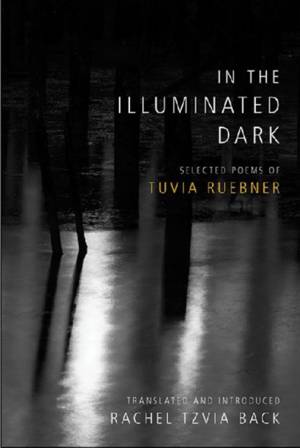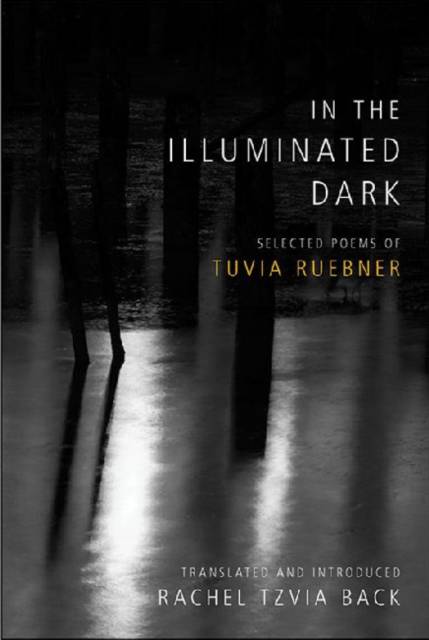
- Afhalen na 1 uur in een winkel met voorraad
- Gratis thuislevering in België vanaf € 30
- Ruim aanbod met 7 miljoen producten
- Afhalen na 1 uur in een winkel met voorraad
- Gratis thuislevering in België vanaf € 30
- Ruim aanbod met 7 miljoen producten
Zoeken
€ 33,95
+ 67 punten
Prijzen
Omschrijving
Loss defines the crossbeams and chronicles of Tuvia Ruebner's life. Born in 1924 into a semi-secular Jewish family in Slovakia, Ruebner was also born into the catastrophe that would follow-the extermination of European Jewry and of his own family in the Holocaust. Hitler became chancellor of Germany on Ruebner's ninth birthday. Six years later, the race-laws enacted in Slovakia banned all Jewish students from school, and Ruebner's formal education ended with ninth grade. His involvement in the Socialist-Zionist youth movement bought him a ticket out to Palestine and, in 1941, the seventeen-year-old bid his family farewell at the Pressburg Bratislava train station, unaware that he would never see them again. The disasters of the twentieth century swept Ruebner from Europe to Israel, from German to Hebrew, from the familiar to the strange. Despite his truncated formal education, he became a poet and man of letters in Israel's fledgling intellectual community alongside other Jewish immigrant-refugee-survivors like Ludwig Strauss, Werner Kraft, Lea Goldberg, and Dan Pagis, eventually gaining international esteem as professor of comparative literatures at Haifa University and as translator of Nobel prize winner S.Y.Agnon's stories into German. Ruebner's early work in Israel took shape in German, the language he spoke to his lost beloveds and the language of Kafka, Hoelderlin, and Rilke, whose work he loved, a language that protected him from the overwhelming strangeness of his new land and life. He began composing poetry in Hebrew in the 1950s, beginning a life-long relationship with the newly-revived ancient tongue. The result: fifteen poetry collections in Hebrew, from The Fire in the Stone in 1957 to Last Ones in 2013, a poetic oeuvre that has received countless awards and accolades in Israel and Europe alike and has established Ruebner as an elder of the tribe. Ruebner's poetry offers us an exquisite and indispensable voice of the twentieth century. His little sister, murdered in Auschwitz, and his youngest son, who disappeared in South America, wander unceasingly through his poems. Beyond the personal losses, the devastation of the century informs all of his work. Textual rupture and fragmentation echo historical rupture and fragmentation. The wonder of Tuvia Ruebner is that, after a lifetime of loss and tragedies, he remains open to the possibility of happiness. This openheartedness accommodates the many paradoxes and conflicts of life and infuses his poetry with an enduring and encompassing compassion for the lost and for the living alike. Rachel Tzvia Back's graceful translations of select poems representative of Ruebner's seven-decade poetic trajectory are ever-faithful and beautifully attuned to the Hebrew originals, even as they work to create a new music in their English incarnations. Her comprehensive introduction and annotations supply the context in which these poems were produced. This first-ever bilingual edition, published as Ruebner marks his 90th birthday, gives readers in both Hebrew and English access to stunning poetry that insists on shared humanity across all border lines and divides.
Specificaties
Betrokkenen
- Auteur(s):
- Uitgeverij:
Inhoud
- Aantal bladzijden:
- 396
- Taal:
- Engels
Eigenschappen
- Productcode (EAN):
- 9780878202553
- Verschijningsdatum:
- 15/04/2014
- Uitvoering:
- Hardcover
- Formaat:
- Genaaid
- Afmetingen:
- 163 mm x 241 mm
- Gewicht:
- 725 g

Alleen bij Standaard Boekhandel
+ 67 punten op je klantenkaart van Standaard Boekhandel
Beoordelingen
We publiceren alleen reviews die voldoen aan de voorwaarden voor reviews. Bekijk onze voorwaarden voor reviews.














